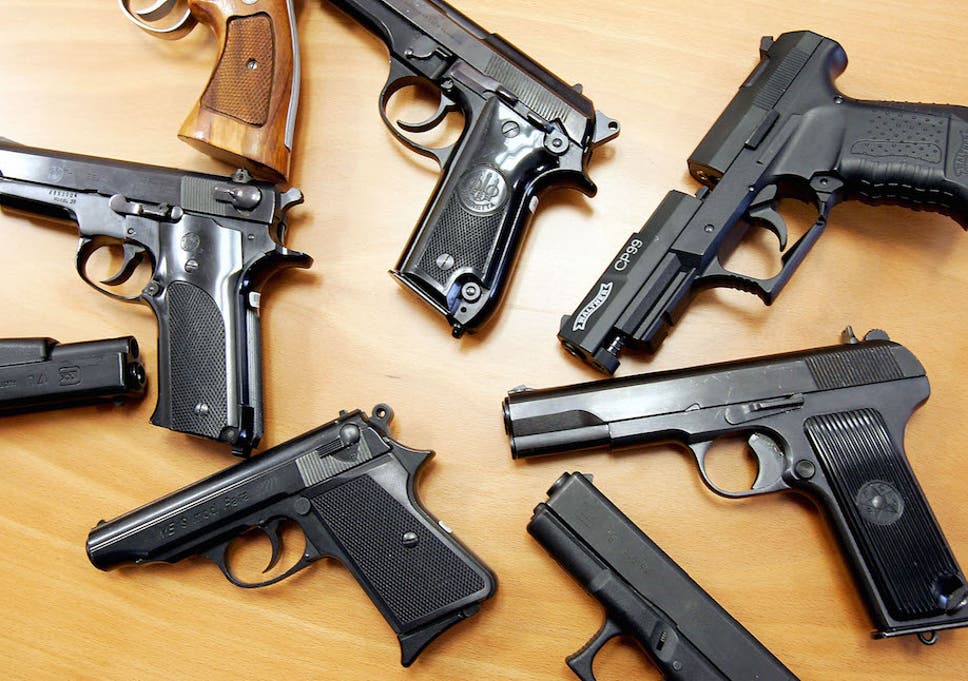Czech government tells its citizens how to fight terrorists: Shoot them yourselves
OFF THE WIRE
Amanda Erickson
 A couple of months ago, Czech President Milos Zeman made an unusual
request: He urged citizens to arm themselves against a possible
"super-Holocaust" carried out by Muslim terrorists.
A couple of months ago, Czech President Milos Zeman made an unusual
request: He urged citizens to arm themselves against a possible
"super-Holocaust" carried out by Muslim terrorists.
Never mind that there are fewer than 4,000 Muslims in this
country of 10 million people — gun purchases spiked. One shop owner in
East Bohemia, a region in the northern center of the Czech Republic,
told a local paper that people were scared of a "wave of Islamists."
Now the country's interior ministry is pushing a constitutional
change that would let citizens use guns against terrorists. Proponents
say this could save lives if an attack occurs and police are delayed or
unable to make their way to the scene. To become law, Parliament must
approve the proposal; they'll vote in the coming months.
The Czech Republic already has some of the most lenient gun
policies in Europe. It's home to about 800,000 registered firearms and
300,000 people with gun licenses. Obtaining a weapon is relatively easy:
Residents must be 21, pass a gun knowledge check and have no criminal
record. By law, Czechs can use their weapons to protect their property
or when in danger, although they need to prove they faced a real threat.
This puts the country at odds with much of Europe, which has long
supported much more stringent gun-control measures. In the wake of the
2015 terror attacks in Paris, France pushed the European Union to enact
even tougher policies. The European Commission's initial proposal
called for a complete ban on the sale of weapons like Kalashnikovs or AR-15s that are intended
primarily for military use. Ammunition magazines would be limited to 20
rounds or less.
The Czech Republic came out hard against the directive. Officials warned
— somewhat ominously — that the measure would limit the country's
ability to build "an internal security system" and make it nearly
impossible to train army reservists. And a total ban on military-style
rifles that can fire large numbers of rounds would make illegal
thousands of weapons already owned by Czech citizens, potentially
creating a black market for terrorists to exploit. Finland and Germany
offered their own reservations; Europe's pro-gun groups also mobilised
against the bill with the support of politicians on the extreme right.After months of contentious negotiations, the EU passed a compromise
last month; the Council of Ministers will confirm the measure this
spring. All member states will have 15 months to comply with the new gun
restrictions. The final measure bans the sale of most military-style
rifles and requires all potential buyers to go through a psychological
check before they can buy a weapon. If someone fails a check in one E.U.
state, that information will be shared in an international database so
that the person can't procure a gun somewhere else. Online sales are
also severely curtailed. The Czech Republic was the only country to
oppose the directive for being too strict. Luxembourg also voted against
the measure, but on the grounds that it was too weak.
That means that regardless of how the Czech parliament votes on
the terrorist-hunting measure, gun laws in the Czech Republic are going
to get stricter. All gun purchasers will be required to pass the
psychological checks, though it's not yet clear if gun owners will have
to turn in newly illegal weapons. That ambiguity has led one Czech
newspaper to suggest that the Interior Ministry's latest move is much
more about political safety than safety from terrorism.
Copyright: The Washington Post

